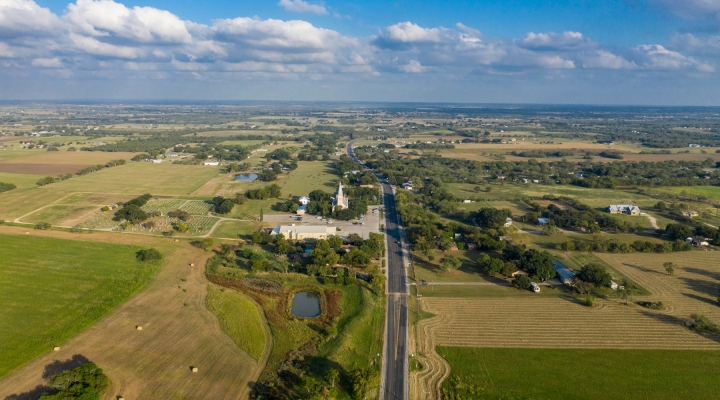TEMPLE, Texas — The USDA’s Natural Resources Conservation Service (NRCS) in Texas announced fiscal year (FY) 2024 financial assistance opportunities for agricultural producers and landowners through the Environmental Quality Incentives Program (EQIP). While NRCS accepts conservation program applications year-round, producers and landowners should apply by Nov. 8, 2023 to be considered for FY2024 funding.
Additionally, Texas NRCS will use the ACT NOW process for some EQIP funding pools. Through ACT NOW, NRCS can immediately approve and obligate a ranked application when an eligible application meets or exceeds a determined minimum ranking score.
EQIP provides financial and technical assistance to agricultural producers and forest landowners to address natural resource concerns. NRCS works one-on-one with producers to develop a conservation plan that outlines conservation practices and activities to help solve on-farm resource issues. Producers implement practices and activities in their conservation plan that can lead to cleaner water and air, healthier soil, and better wildlife habitat, all while improving their agricultural operations.
Inflation Reduction Act (IRA)-EQIP will offer core conservation practices that directly improve soil carbon, reduce nitrogen losses, or that reduce, capture, avoid, or sequester carbon dioxide, methane, or nitrous oxide emissions, associated with agricultural production.
EQIP-Conservation Incentive Contracts (CIC) expands resource benefits for Texas producers through incentive conservation practices such as wildlife management, cover crops, nutrient management, conservation crop rotations, and prescribed grazing. Additionally, EQIP-CIC allows producers to target priority resource concerns on their property by offering incentive payments for a five-year contract without needing to enroll the entire operation into the program. EQIP-CIC is designed to be a stepping-stone between EQIP and the Conservation Stewardship Program (CSP), to help producers improve their level of conservation and earn benefits of longer-term conservation enhancements.
Landowners can also choose to apply for financial assistance to get help installing the conservation practices outlined in their voluntary conservation plan through any one of the programs mentioned above. Through Farm Bill programs, NRCS provides technical and financial assistance to help producers and landowners make conservation improvements on their land that benefit natural resources, build resiliency, and contribute to the nation’s broader effort to combat the impacts of climate change.
Applying for Assistance
Interested producers should submit applications to their local NRCS office by November 8, 2023, to be considered for the 2024 ranking funding period. Visit the Texas NRCS Website for more details about EQIP or other technical and financial assistance available through NRCS conservation programs or contact your local USDA Service Center.
Historically Underserved Producer Benefits
Special provisions are also available for historically underserved producers. For EQIP, historically underserved producers are eligible for advance payments to help offset costs related to purchasing materials or contracting services up front. In addition, historically underserved producers can receive higher EQIP payment rates (up to 90% of average cost). NRCS sets aside EQIP, CSP, and ACEP funds for historically underserved producers.
Conservation Practices and Climate
NRCS conservation programs play a critical role in USDA’s commitment to partnering with farmers, ranchers, forest landowners and local communities to deliver climate solutions that strengthen agricultural operations and rural America. States may prioritize a variety of voluntary conservation practices through these NRCS programs, including those that support climate-smart agriculture and forestry (CSAF).
Additional information is available on the Texas NRCS website at www.tx.nrcs.usda.gov or by contacting your local USDA Service Center.
–USDA NRCS Texas









